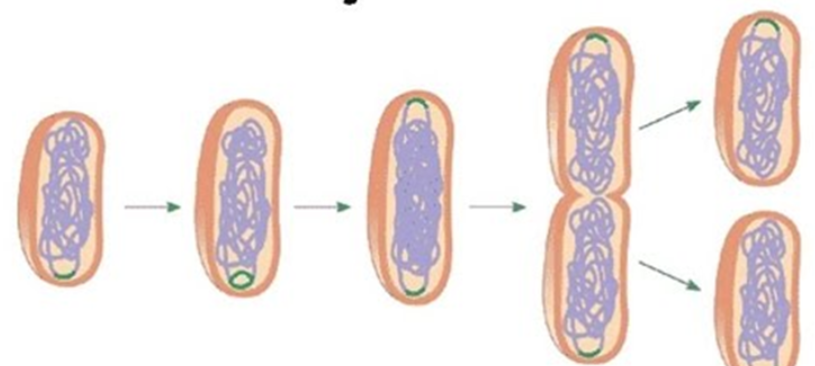Binary fission is the type of asexual reproduction, where, new bodies are formed by the separation of already existing bodies. In this process, the genetic material of the organism is duplicated and then by the cytokinesis, it is divided into two parts. One copy of the DNA is received by each new organism. In prokaryotic organisms, it is the primary method for reproduction. However, in the protists, the binary fission is differentiated into types such as longitudinal or transverses, but it depends on the axis of the separation of the cell. The exact meaning of binary fission is the division in half and the fully-grown parent cells are divided into the two halves thereby producing two new daughter cells.
Binary fission is a simple procedure in which a cell splits into two different cells. Like other means of reproduction, the process of binary fission is not complicated. Mostly, the bacteria including E. coli and salmonella divides by the binary fission process. In the process of binary fission, a single DNA molecule is replicated and both of its copies are attached to the different points on the cell membrane. As soon the cell starts growing and elongating, the distance between the two molecules of DNA is increased. Once the size of the bacterium is doubled to its original size, an inward pinching of the cell membrane at the center is observed. Later on, a cell wall is formed that causes the separation of the two DNA molecules and the original cell is divided into the two identical daughter cells.
Various benefits are associated with the method of reproduction by the binary fission. Binary fission enables a single bacterium to reproduce in the high numbers at the faster rates. Under the optimum conditions, the population of some bacteria can be doubled in merely a few minutes. In the process of binary fission, there is no requirement to search for the mate. Additionally, the daughter cells which are resulted by the binary fission are identical to the parent or the original cell.
Binary Fission

For the reproduction of bacteria, binary fission is an effective way. However, some kind of problems is associated with this type of reproduction. All the cells which are produced by the binary fission are identical in every aspect, so, all of them are susceptible to the same kind of stresses, threats, antibiotic, and environmental changes. Due to these hazards, the entire colony can be destroyed.